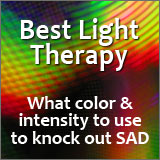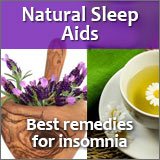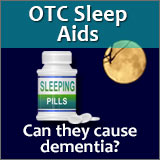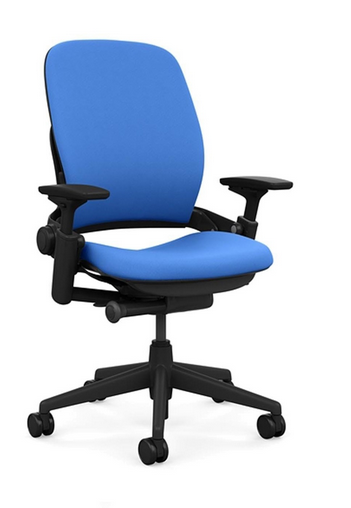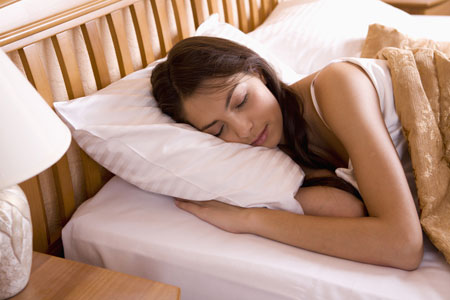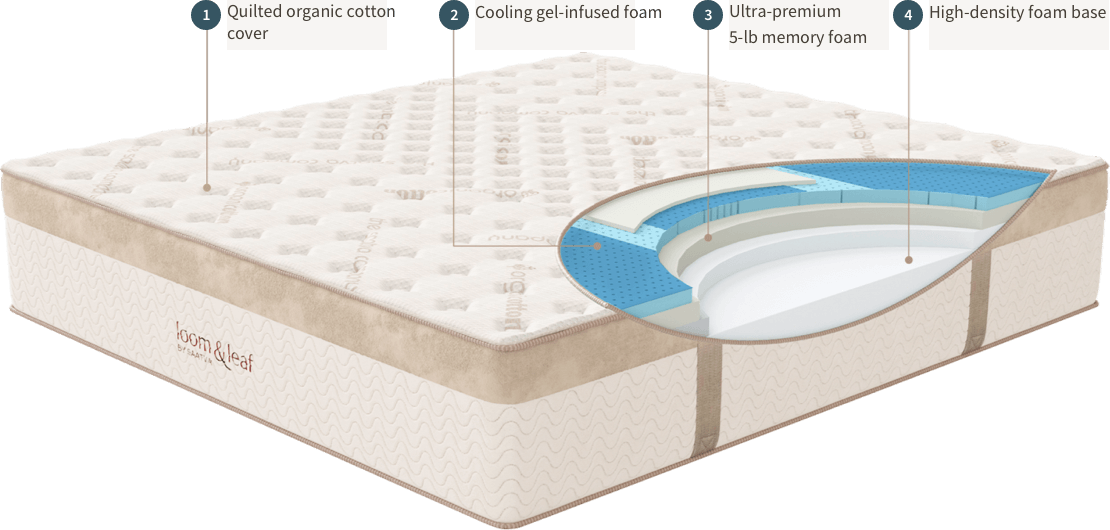More Herbal Sleep Apnea Solutions
In a previous article on herbs, I said I'd keep looking for herbal sleep apnea solutions.
And I recently read an interesting study that tested whether odors could be used for treating sleep apnea because of their effect on breathing. As you probably already know, sleep apnea is a disruption of breathing during sleep. It can be life threatening.
In this study, it was shown that the brain is responsive to odors during sleep. It was also shown that these odors do not cause a person to wake up.
In fact, here's what the authors of the study write:
“[odors] do not arouse or wake, and to the extent that they influence arousals and wakes at all, they in fact reduce them.”
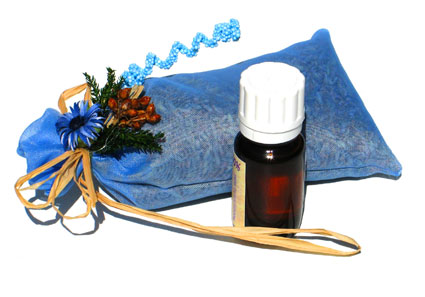
That's good news for staying asleep
The other good news was that the herb lavender was one of the odors they tested. I've written previously about how lavender is an excellent herbal sleep remedy... and how to use it. And now it's showing promise as one of the herbal sleep apnea solutions also.
This study found that the odor of lavender did indeed effect breathing in a positive way. The study authors write:
“However, considering the dynamics of apnea, one may question whether such respiratory manipulation as evidenced here will have any influence on apnic events. This, however, can only be answered by now replicating the current study in patients with apnea, and we think that the current results merit such a test.”
The use of odors—aromatherapy—has also been shown to be somewhat effective as a treatment for insomnia or poor sleep.
So the point here is that you may want to discuss with your health care provider if using lavender as one of the herbal sleep apnea solutions will help you. I suspect if you have mild sleep apnea, it would be more likely to work than if you had severe sleep apnea.
Here are some aromatherapy products at Amazon
As an aside about mild sleep apnea, combining aromatherapy with weight loss may be particularly effective. One of the questions I've been seeing people ask is...
“Is weight loss one of the better sleep apnea solutions?”
Medical Hypnosis is
an Excellent Way
to Lose Weight
Joel Fuhrman M.D., a board certified doctor, NY Times best-selling author, and nutrition expert strongly recommends this medical hypnosis program for weight loss.
Click here to boost your will power and watch the pounds disappear.
I've written an article about that called Can Weight Loss Be A Natural Cure for Sleep Apnea?
And yes, mild to moderate sleep apnea can be cured or greatly improved
with a weight loss of 10% or more of body weight. Even a small amount of
weight loss can provide relief from some of the side effects of sleep
apnea, even severe sleep apnea.
I recently learned that one of the most effective ways to lose weight...and keep it off...is medical hypnosis. Click the link in that box to your right. You'll find it interesting (link opens a new window).
As for severe sleep apnea, it's usually
treated with a CPAP machine
CPAP stands for continuous positive airway pressure. A CPAP machine helps with breathing during sleep.
CPAP for sleep apnea can lower blood pressure and reduce the risk of heart disease and memory impairment. The problem is that only about 20% of people who try a sleep apnea machine keep using it on a regular basis. Because the fact is, most people hate CPAP machines.
Yet make no mistake. CPAP is the number one choice sleep doctors prefer for their patients who have obstructive sleep apnea.
So please keep in mind, for severe sleep apnea, it's very difficult to find natural ingredients that help.
Don't bet the farm on herbal sleep apnea solutions and abandon your CPAP machine without a thorough discussion with a good sleep doctor.
An update on green tea supplements for sleep apnea
In my article, herbs for sleep apnea, I talked quite a bit about how great an herb green tea is. I also mentioned that if I found a good supplement that contained green tea, I'd let you know.
A company in New Zealand, Xtendlife, has a line of premium nutrition supplements (called Total Balance) packed to the brim with healthy ingredients. One of the ingredients is 80 mg of green tea catechins, the effective form of green tea extract.
Click here for a look at Total Balance Men's Premium. (Link opens in a new window.)
Click here for Total Balance Women's Premium. (Link opens in a new window.)
Here are several reasons why you may want to consider these supplements:
- Green tea can help with weight loss. It appears to boost fat-burning metabolism.
- Green tea may help to improve mental clarity and protect
against nerve damage in the brain caused by the breathing difficulties
brought on by sleep apnea.
- Green tea contains L-theanine, an excellent calming ingredient often found in natural sleep aids.
- And green tea extract is an effective antioxidant that fights harmful, cell-damaging free radicals.
This last point is important in terms of the search for herbal sleep apnea solutions. Why? Because a recent study concluded:
“antioxidant treatment may be beneficial as a therapy in obstructive sleep apnea.”
Total Balance is loaded with antioxidants. It was formulated by one of the top biochemists in the world. The only downside is this: his research showed that for good health, it was vital to put several expensive ingredients in the formula that are not typically put in supplements because of their cost.
One final point about these sleep apnea solutions
These supplements are in no way marketed for or even suggested as herbal sleep apnea solutions.
That said, Total Balance Premium may greatly improve your health. One of the best things you can do for your sleep apnea is to get into the best shape you possibly can. The healthier your body is, the better your breathing is.
So take a look at Total Balance Men's Premium. Or click here for Total Balance Women's Premium. (Both links open a new window.)
These are high-quality health supplements.
References
- The Influence of Odorants on Respiratory Patterns in Sleep. Chem.
Senses 35: 31–40, 2010. Anat Arzi, Lee Sela, Amit Green, Gili Givaty,
Yaron Dagan and Noam Sobel
- Green Tea Catechin Polyphenols Attenuate Behavioral and Oxidative Responses to Intermittent Hypoxia. Isabel C. Burckhardt1, David Gozal1,2, Ehab Dayyat1, Yu Cheng1, Richard C. Li1, Aviv D. Goldbart3, and Barry W. Row1
Here are more articles you will find helpful
What is Sleep Apnea and Why is it so Deadly?
Could This Be One Possible Approach to a Sleep Apnea Cure?
Sleep Apnea and Weight Loss: 7 Tips
Why Getting Help With Snoring Saves Lives (A Sleep Chat Back Issue)
Accident Report: Sleep Apnea Cause Of Massive Train Wreck
12 Healthy Weight Loss Tips
5 Good Weight Loss Foods
23 Dangerous Sleep Apnea Symptoms
Return to Sleep Passport Home Page



